After your operation your body needs time to heal. However, during this recovery period it is important that you continue to be active and try to get moving again sooner rather than later.
Research has shown that there are lots of benefits to getting out of bed early and returning to normal activities. This is part of a program called Enhanced Recovery After Surgery, also known as ERAS.
Everybody’s recovery is different, but this booklet provides some information about what you can expect, and some targets for you to work towards after your operation.
Recovery begins before surgery
Recovery from surgery actually starts before your operation even begins. Click here to read the Getting Fit for Surgery page which has more information about how you can prepare for surgery to improve your chances of a good recovery.
Enhanced recovery after surgery (ERAS)
ERAS aims to get you back to your normal health as quickly as possible after a major operation. This includes:
- Giving you the best pain relief to get you moving more quickly
- Allowing you to start eating and drinking earlier
- Reducing the time you have catheters and drips
- Teaching you exercises to help you recover after your operation
Benefits of the ERAS programme include:
Return to previous level of health
Reduced risk of chest infection
prevent muscle weakness
Get home sooner
Reduced risk of blood clots
Less constipation
Recover from surgery faster
Improved mood and energy levels
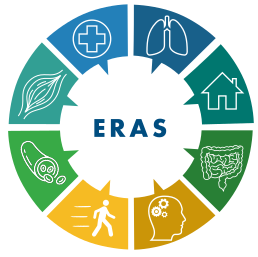
What to expect
The doctors and nurses will help you to set realistic personal goals in your recovery and encourage you to achieve them. This process starts right from the moment you wake up after your operation.
You will be given an ERAS diary which gives you an idea of what you might be able to achieve each day, helps you chart your progress and allows you to reflect on how you are getting on.
Everybody’s recovery is different, but an idea of what you can expect is:
DAY OF OPERATION
- Aim to sit up in bed, or get out of bed if you are able.
- Start performing breathing exercises (see below)
DAY 1
- Aim to be out of bed, either in a chair or standing, for as long as possible today.
- Start taking short walks, with assistance from the nurses if needed.
- Get washed and changed into your own clothes. The nursing staff will help you with this.
- Perform breathing exercises every hour that you are awake (see below)
- Perform mobility exercises 5 times a day (see below)
DAY 2
- Aim to be sitting out of bed in a chair for at least 6 hours today
- Continue the breathing and mobility exercises you were doing on Day 1
- Aim to gradually increase the distance you are walking
- We will encourage you to become more independent and to get dressed if you feel able
DAY 3
- Ideally you will be starting to think about getting home in the next couple of days
- To keep making good progress, remain active and slowly increase the amount you do each day
How will I feel?
During your recovery some days will go better than others. Using the ERAS diary will help you reflect on the progress you are making, even on the days that are not going so well.

Feeling sick
Feeling sick is not unusual after surgery, but there will always be anti-sickness medicine available (anti-emetics). You should tell the nurses or doctors looking after you if you are feeling sick.

Tiredness
Recovering from surgery requires a lot of energy as your body heals. This will make you feel more tired than normal.
It is important to get enough good quality sleep at night to allow you to be active during the day. You may want to consider bringing an eye mask and ear plugs to help you sleep if you will be staying in hospital.

Pain
You may be worried that pain will stop you from moving, but there are a range of pain relief options available to help you.
Although you may not be totally pain free, you should be able to do the mobility and breathing exercises. If it is too painful to do these you should tell the nurses or doctors looking after you.
For more information see the pain relief webpage.
The team looking after you
Getting going with your recovery after surgery may seem daunting, but we are here to support you through this process.
The staff at NHS Lothian work together to make your recovery go as smoothly as possible, but it all starts with you.

Food and drink
Eating after an abdominal operation is not dangerous. In fact, it helps make the muscles and nerves in your bowel start working again.
Eating and drinking
You will normally be able to drink water soon after your operation. You can drink as much water as you feel able.
Hopefully, by the first day you will be able to start eating. Your surgeon or nurse will review your diet and give you advice each day. There is lots of choice on the hospital menu. If you have any dietary requirements that are not met by the menu then please let the staff know.
You may find that your appetite is reduced or that you feel sick at times. It is usually easier to eat little and often.
To help with this there are snacks available on the ward. You can walk to the patient snack fridge to help yourself. Ask the nurses what is available on your ward and they will show you where they are. Your family can also bring snacks from home.
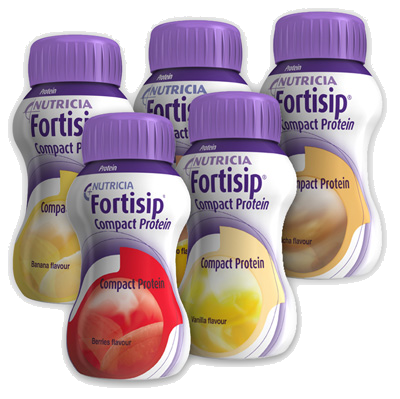
Supplement drinks
You should try to have some supplement drinks (milk or juice based) in the first few days after surgery. The drinks are kept in the patient snack fridges on the ward. You are welcome to help yourself. Have drinks between meals so that you don’t fill yourself up and still have an appetite for other food.
Please let the nurses know what you eat and drink, or even better keep a record in your ERAS diary.
Breathing exercises
It is really important that you are able to breathe deeply and cough after your operation. This keeps your lungs open, helps you clear secretions and stops you getting a chest infection or pneumonia
You should aim to do the following exercises every hour that you are awake:
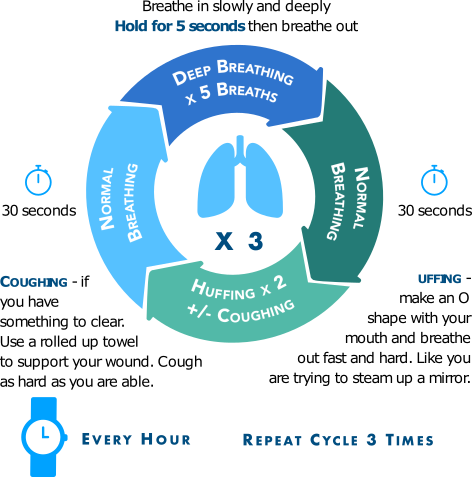
If you feel it is too sore to do your breathing exercises please tell the doctors and nurses looking after you so that they can help you.
Getting moving again
You should aim to be up and walking as soon as possible after surgery. This is very important because it stops your muscles getting weak and prevents blood clots.
Try taking the following steps:
Day of operation
Sit out of bed in a chair
Day 1
Walk to the bathroom with assistance if required
Day 2
Walk 5-10 meters without assistance
Day 3
Take up to 5 walks per day. Increase the distance each time.
Nurses, physios and support workers will all be happy to help if you feel you need support or assistance.
Enhanced recovery walkways
The Western General Hospital has an ERAS walkway with distance markers. Ask your nurse or physio to show you where this is. You might like to use the corridor to measure your progress, aiming to walk slightly further each day.
Mobility exercises
When you are able, try these mobility exercises 5 times per day:
Leg extension
Raise one leg straight out in front and pull up your toes to tighten your thigh muscles. Hold for 5 seconds then slowly lower leg.
Repeat x 10 on Each Leg
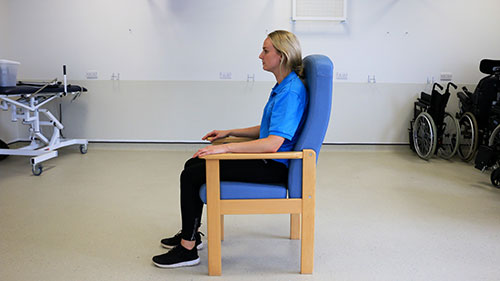
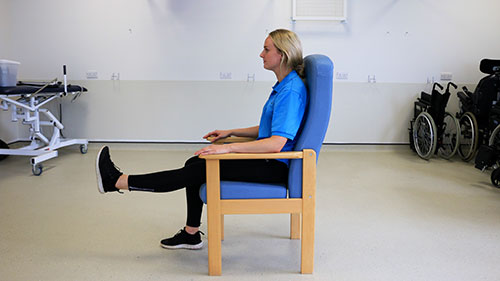
Marching on the spot
Stand with feet hip width apart and hold onto supportive surface. March on the spot.
3 x 30 seconds
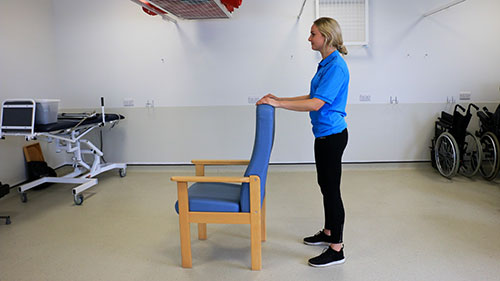
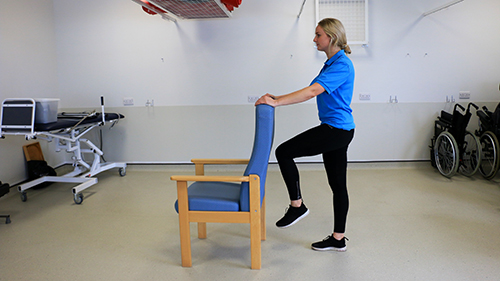
Standing squat
Stand with feet hip width apart. Squat down so both knees and hips are slightly bent then rise back up. Movement should be slow and controlled.
Repeat x 10
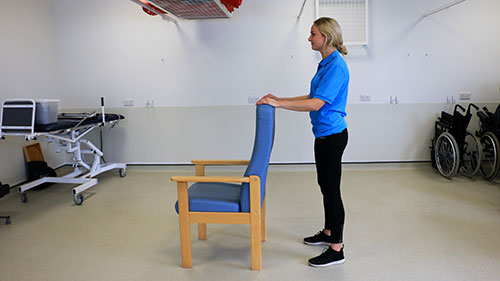
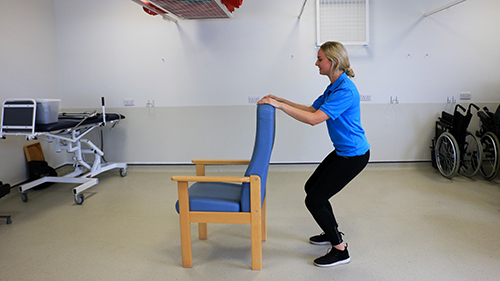
Research
NHS Lothian is committed to supporting clinical research. If you are eligible for any research studies, someone from the research team may contact you with information that you can read. If you do not wish to take part in any research, this will not affect your clinical care in any way.
PLEASE NOTE
This website includes content taken from the Royal College of Anaesthetists’ (RCoA) leaflets ‘Fitter, Better, Sooner (2018)’, ‘You and your anaesthetic (2020)’, ‘Anaesthesia explained (2015)’, and ‘Common events and risks in anaesthesia(2019)’. However, The RCoA has not reviewed the website as a whole. Some of the RCoA infographics used on the website have been adapted for web viewing.














